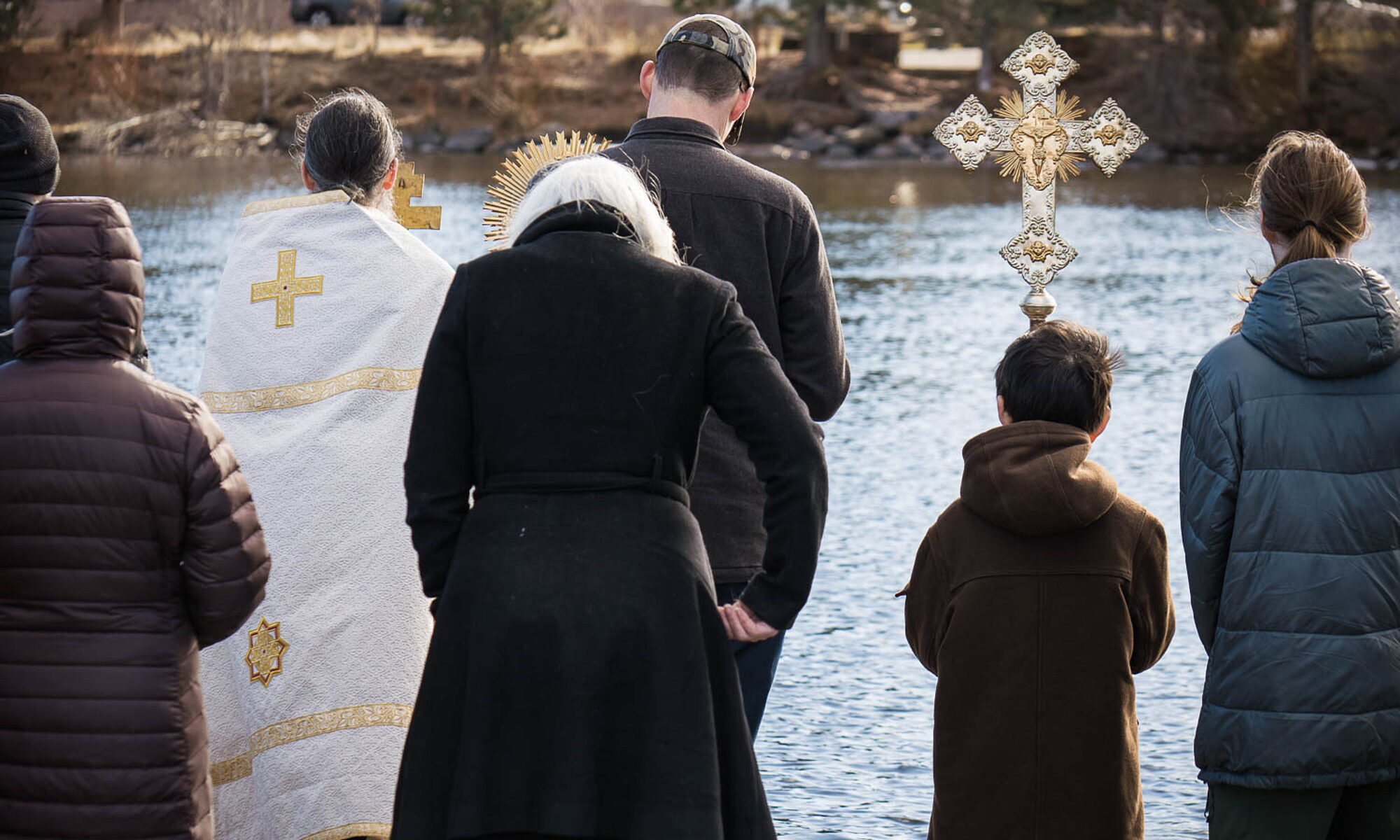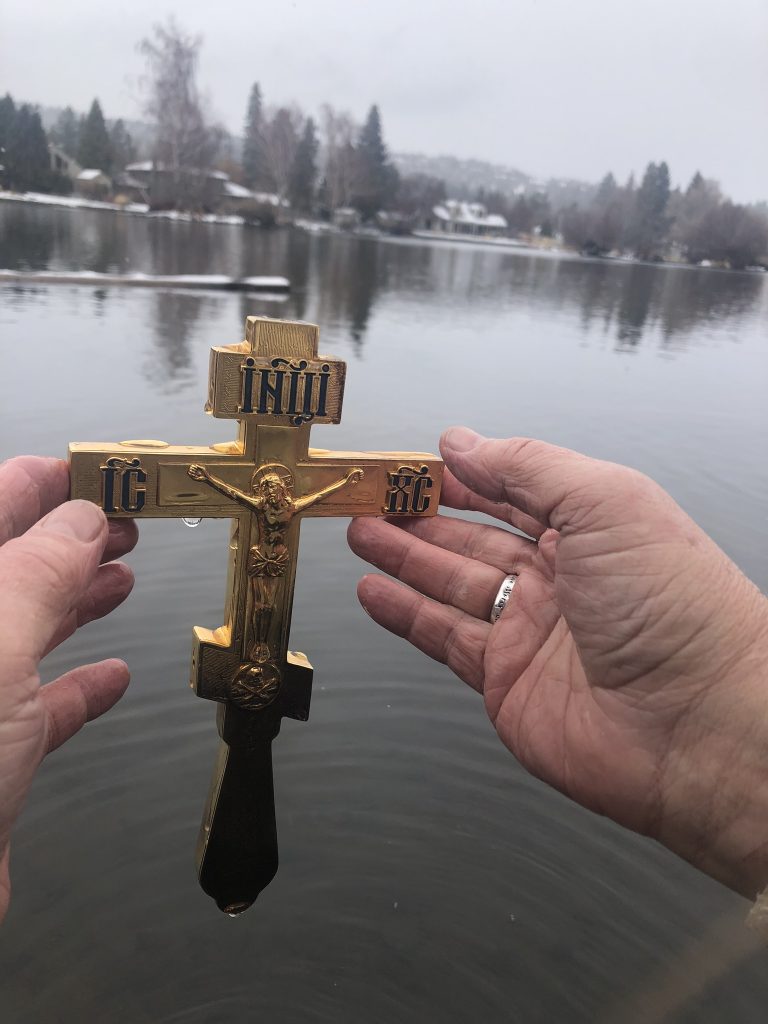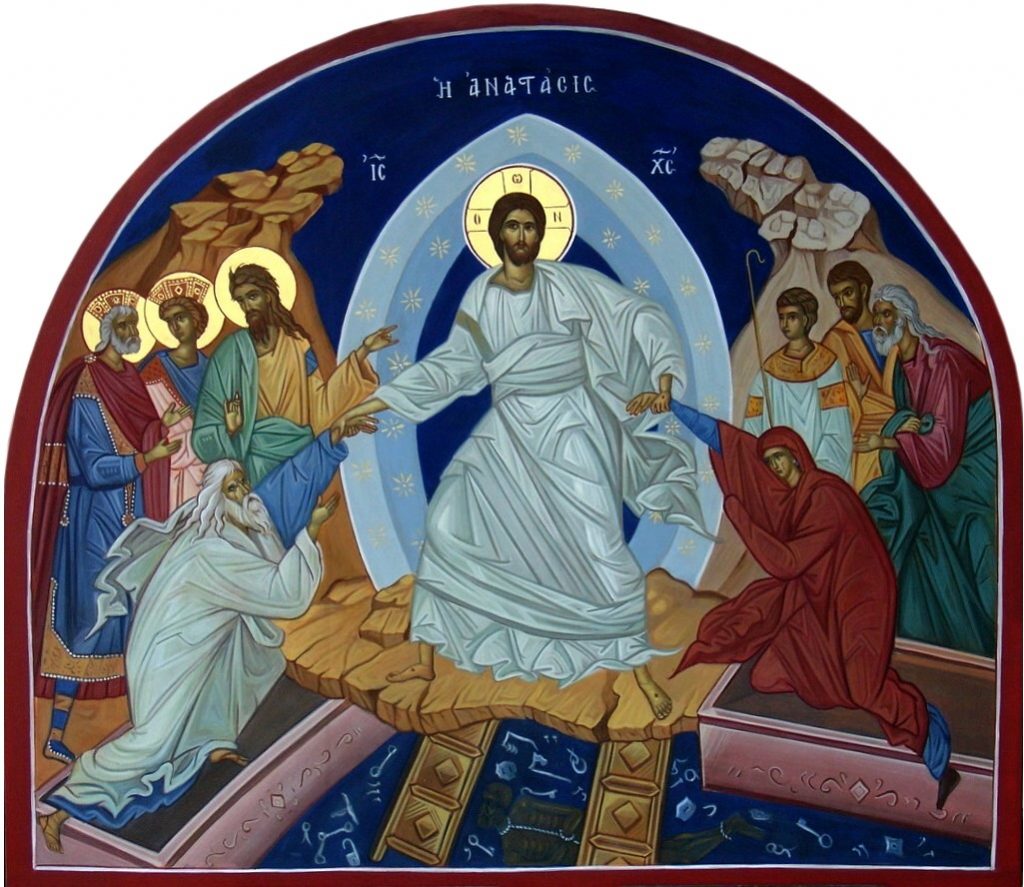Antipascha
The Sunday after Easter, called the Second Sunday, is thus the eighth day of the paschal celebration, the last day of Bright Week. It is therefore called the Antipascha, and it was only on this day in the early church that the newly-baptized Christians removed their robes and entered once again into the life of this world.
In the Church services the stress is on the Apostle Thomas’ vision of Christ and the significance of the day comes to us in the words of the gospel: Then He said to Thomas, “Put your finger here, and see My hands; and put out your hand, and place it in My side; do not be faithless, but believing.” Thomas answered Him, “My Lord and my God!” Jesus said to him, “Have you believed because you have seen Me? Blessed are those who have not seen and yet believe” (Jn 20.27–29).
The Myrrhbearing Women
The third Sunday after Pascha is dedicated to the myrrhbearing women who cared for the body of the Saviour at his death and who were the first witnesses of His Resurrection.
The Paralytic
The fourth Sunday is dedicated to Christ’s healing of the paralytic (Jn 5). The man is healed by Christ while waiting to be put down into the pool of water. Through baptism in the church we, too, are healed and saved by Christ for eternal life. Thus, in the church, we are told, together with the paralytic, “to sin no more that nothing worse befall you” (Jn 5.14).
The Samaritan Woman
The fifth Sunday after Easter deals with the woman of Samaria with whom Christ spoke at Jacob’s Well (Jn 4). Again the theme is the “living water” and the recognition of Jesus as God’s Messiah (Jn 4.10–11; 25–26). We are reminded of our new life in Him, of our own drinking of the “living water,” of our own true worship of God in the Christian messianic age “in Spirit and in Truth” (Jn 4.23–24). We see as well that salvation is offered to all: Jews and Gentiles, men and women, saints and sinners.
The Blind Man
The sixth Sunday commemorates the healing of the man blind from birth (Jn 9). We are identified with that man who came to see and to believe in Jesus as the Son of God. The Lord has anointed our eyes with his own divine hands and washed them with the waters of our baptism (Jn 9.6–11).
Ascension
Jesus did not live with His disciples after His resurrection as He had before His death. Filled with the glory of His divinity, He appeared at different times and places to His people, assuring them that it was He, truly alive in His risen and glorified body.
To them He presented Himself alive after His passion by many proofs, appearing to them during forty days, and speaking of the Kingdom of God (Acts 1.3). On the fortieth day after His passover, Jesus ascended into heaven to be glorified on the right hand of God (Acts 1.9–11; Mk 16.19; Lk 24.51). The ascension of Christ is His final physical departure from this world after the resurrection. It is the formal completion of His mission in this world as the Messianic Saviour. It is His glorious return to the Father Who had sent Him into the world to accomplish the work that He had given him to do (Jn 17.4–5).
. . . and lifting His hands He blessed them. While blessing them, He parted from them and was carried up into heaven. And they returned to Jerusalem with great joy (Lk 24.51–52).
Pentecost: The Descent of the Holy Spirit
In the Old Testament Pentecost was the feast which occurred fifty days after Passover. As the passover feast celebrated the exodus of the Israelites from the slavery of Egypt, so Pentecost celebrated God’s gift of the ten commandments to Moses on Mount Sinai.
In the new covenant of the Messiah, the passover event takes on its new meaning as the celebration of Christ’s death and resurrection, the “exodus” of men from this sinful world to the Kingdom of God. And in the New Testament as well, the pentecostal feast is fulfilled and made new by the coming of the “new law,” the descent of the Holy Spirit upon the disciples of Christ.
When the day of Pentecost had come they were all together in one place. And suddenly a sound came from heaven like the rush of a mighty wind, and it filled all the house where they were sitting. And there appeared to them tongues as of fire, distributed as resting upon each one of them. And they were all filled with the Holy Spirit . . . (Acts 2.1–4).
The Holy Spirit that Christ had promised to his disciples came on the day of Pentecost (Jn 14.26, 15.26; Lk 24.49; Acts 1.5). The apostles received “the power from on high,” and they began to preach and bear witness to Jesus as the risen Christ, the King and the Lord. This moment has traditionally been called the birthday of the Church.



